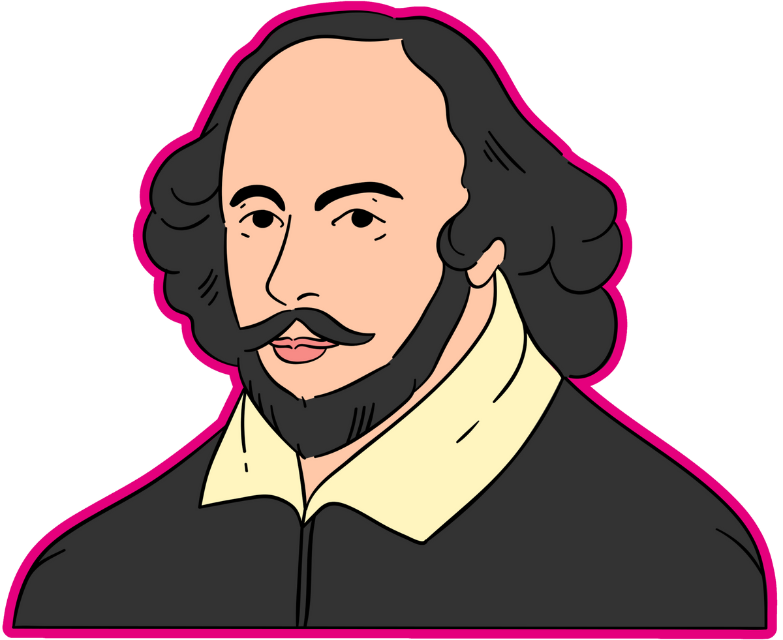Rob Eastaway's...
6 facts about Shakespeare and numbers
As one of the most famous wordsmiths in history, you may be surprised to be reading about Shakespeare on National Numeracy Day! But numbers played a key part in Shakespeare's work, as well as his life.
Rob Eastaway, co-author of Maths for Mums and Dads, journeys into Shakespeare's mathematical life and times in his latest book Much Ado About Numbers. For National Numeracy Day, alongside delivering 'Shakespeare numeracy' talks for thousands of students across the UK, he's shared some facts about how Shakespeare used numbers.
Read on to find out more, and think about how you too use maths every day!

The power of zero
Shakespeare was born in 1564 and he was among the first generation in England to learn the modern Indo-Arabic numeral system (0, 1, 2, 3, 4 etc.) – his father would only have learned Roman numerals.
Shakespeare was particularly fond of the ‘0’ digit (known at the time as 'the cipher', not 'zero') because of its power to make small numbers huge, despite it representing 'nothing'. In The Winter’s Tale, Polixenes multiplies his thanks by adding zeroes: “like a cipher / Yet standing richly in place, I multiply / With one ‘We thank you’ many thousands more” (1.2.6-8).

Maths and music
Shakespeare would have viewed music as a mathematical subject, because notes and harmonies were made by dividing strings and pipes into fractions.
In the Taming of The Shrew, Hortensio disguises himself as a tutor "cunning in music and mathematics" (2.1.59). In Tudor times, music was one of the four mathematical subjects, along with arithmetic, geometry and astronomy.

Numbers for drama
Shakespeare loved using numbers for dramatic effect, usually to exaggerate, e.g. "a thousand natural shocks" in Hamlet’s famous "To be or not to be" speech (3.1.64-70).
The biggest number he uses is in Romeo and Juliet, where the Friar tells Romeo that he will experience "twenty-hundred-thousand times more joy" (that’s two million) when he returns from hiding (3.3.152).

Taking account
Shakespeare's works are filled with accountancy references – words such as ‘audit’, ‘reckoning’ and ‘profit’ appear copiously in his metaphors.
Some think this means he had accounting skills – after all he was a shareholder in his own theatre and also owned property in Warwickshire.

Maths and money
Shakespeare lived at a time when money was based on a duodecimal (twelve) system, meaning there were twelve pennies in a shilling. Because twelve is divisible in so many ways, there were coins worth twopence, threepence, fourpence (the ‘groat’), and sixpence, as well as halfpennies and quarter-pennies (farthings). Shakespeare refers to all of these coins, and many more besides.
Financial numeracy was essential in daily life, because of the need to buy and sell at the market.

Keeping score
Shakespeare liked to express numbers in twenties, using 'score'. Instead of sixty he usually says "three score". Three times he writes "twelve score" instead of 240.
In Othello, he states the number of hours in a week not as "168", but as "eight score eight" (3.4.184).





